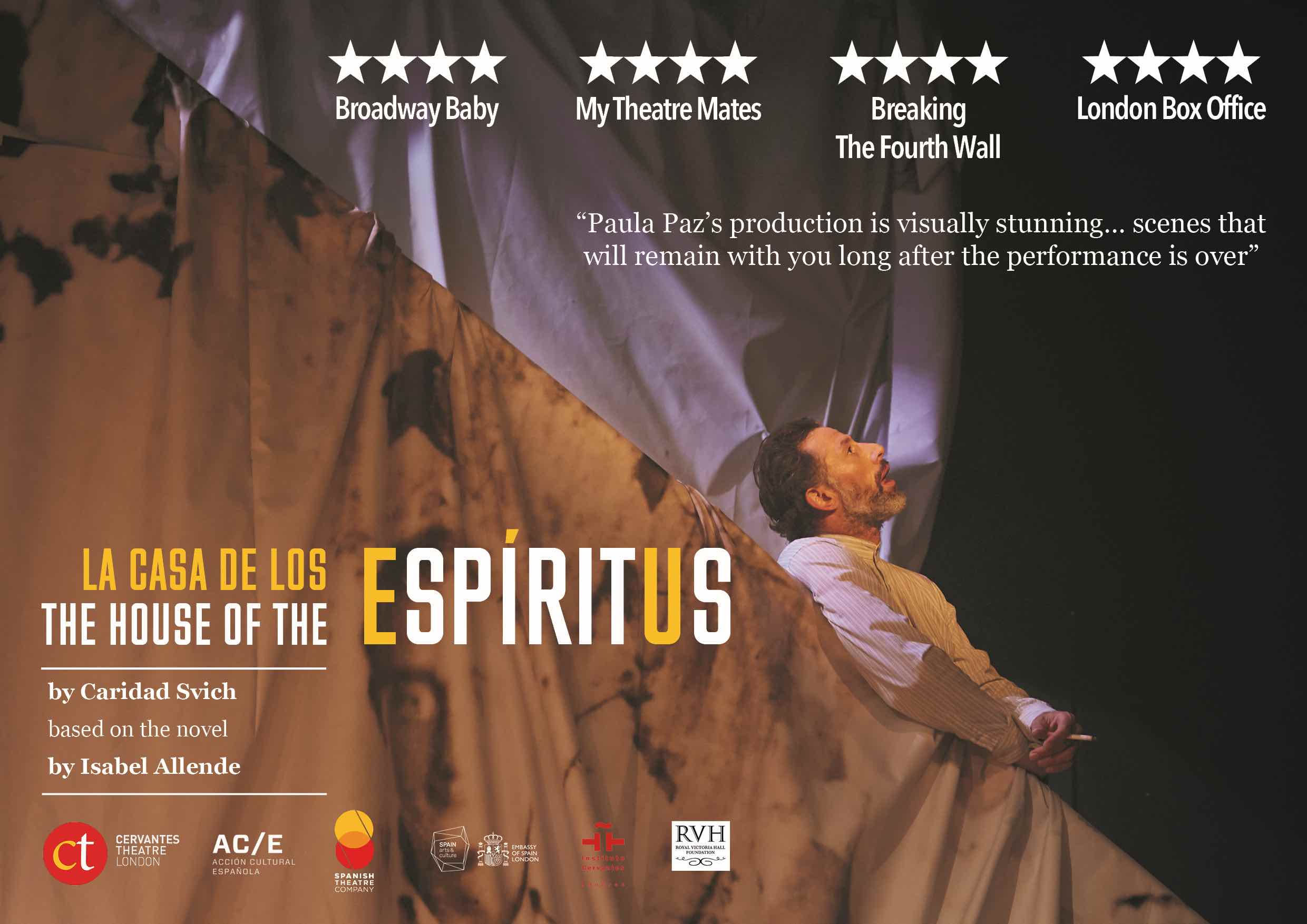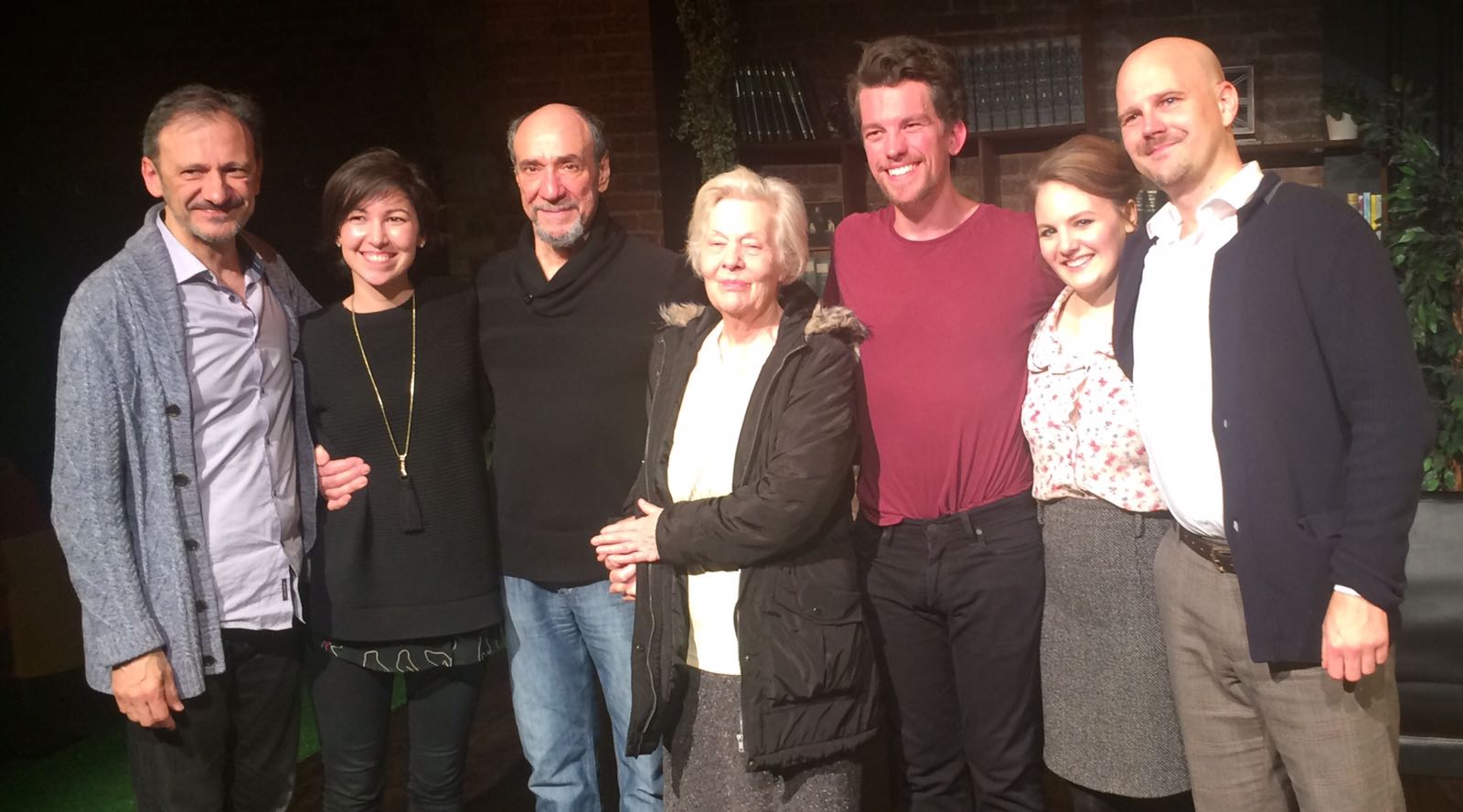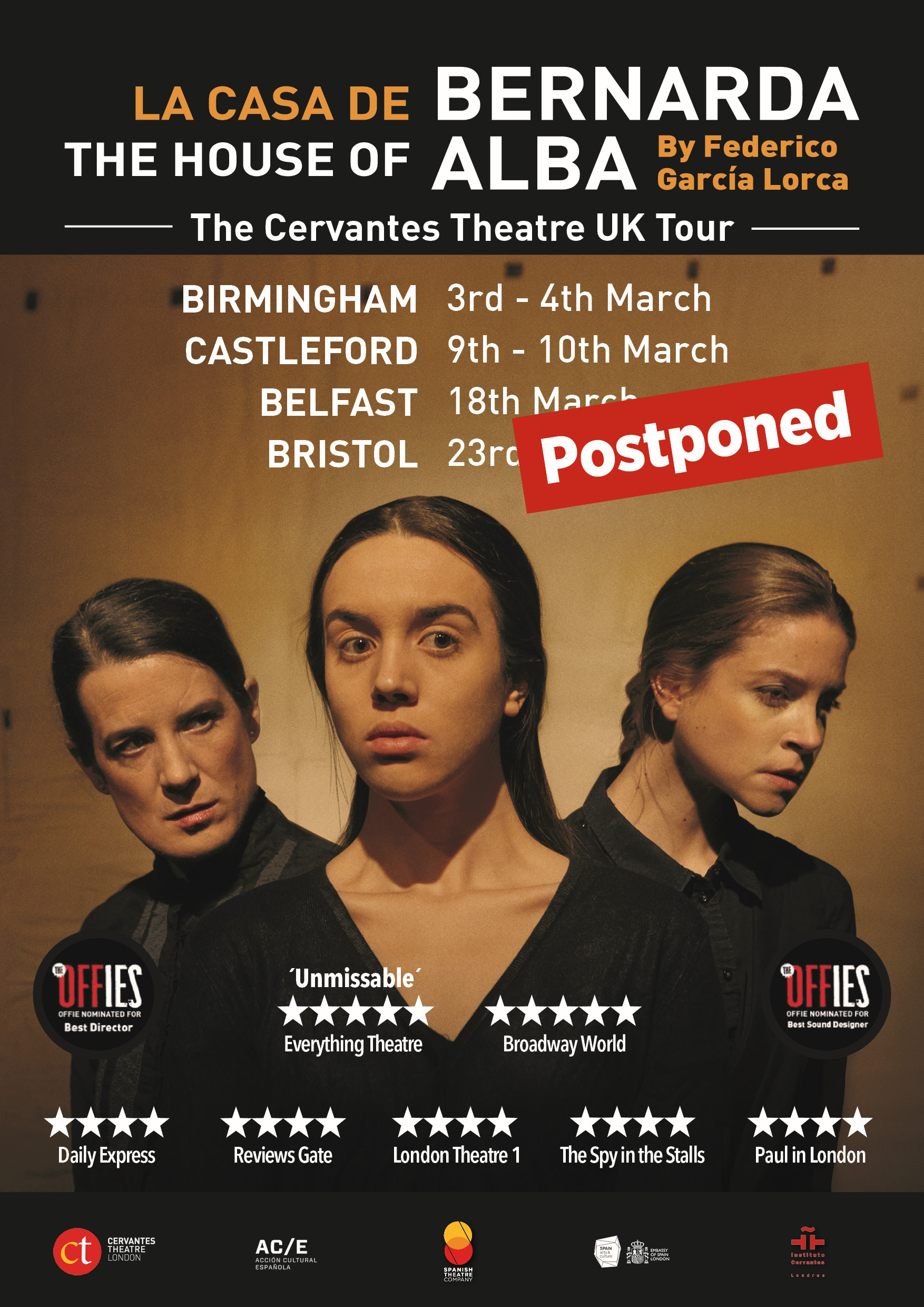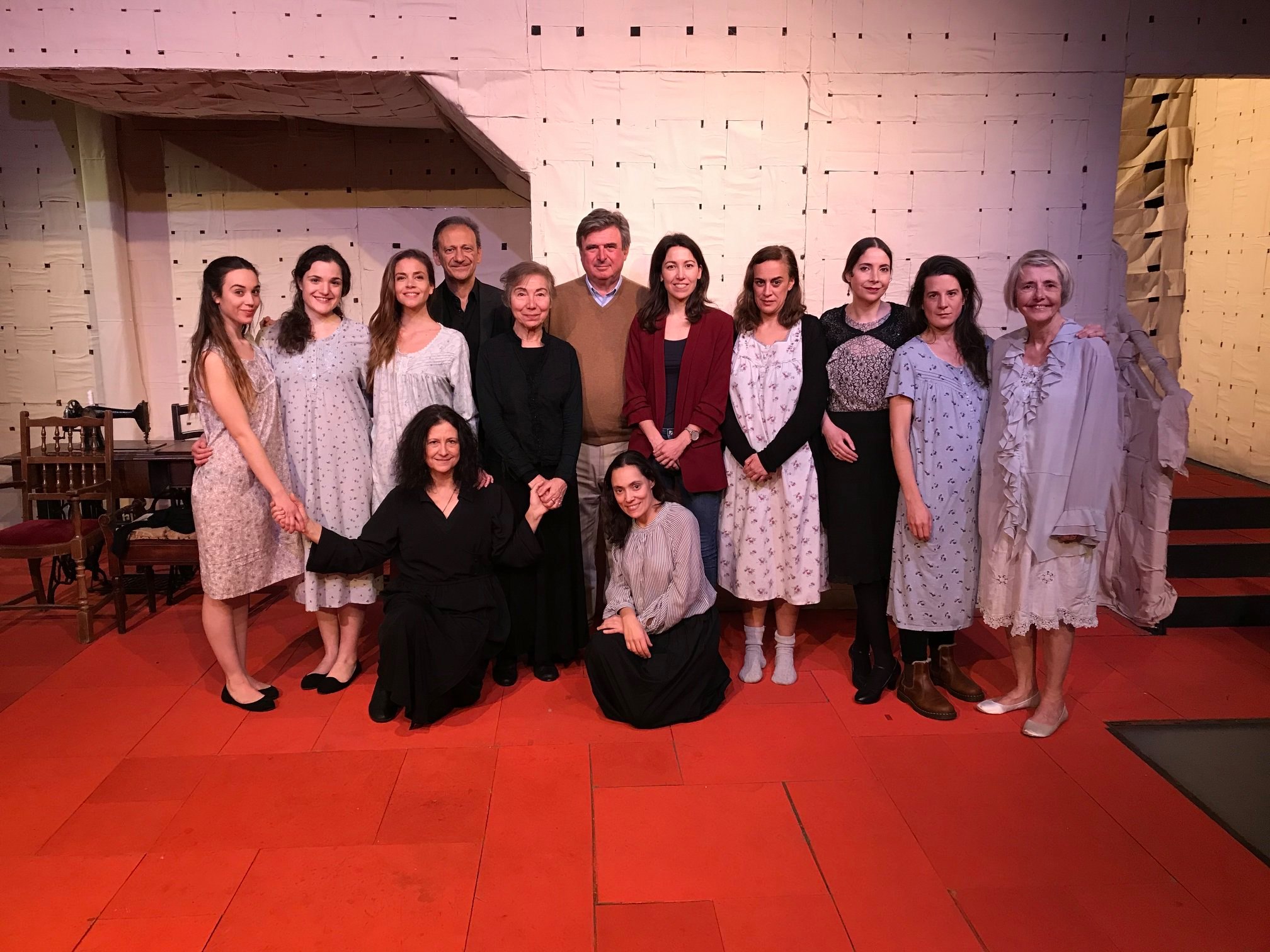HISPANIC-BRITISH CONVERSATIONS – Jorge de Juan: «Cervantes Theatre wants to be part of the rebirth that is to come and we hope to be»

This week we begin a series of interviews with personalities from the Spanish-British sphere. Our first guest, Jorge de Juan, is the founder and artistic director at Cervantes Theatre. He will tell us about the beginnings of the theatre, how the crisis of COVID-19 affects his work and also, his plans for the future.
Jorge de Juan (Cartagena, 1961) is a renowned Spanish producer, director, and actor. He trained at the Royal School of Dramatic Art in Madrid as well as the British Theatre Association. Directing credits include: The Public and The Grain Store (Fourth Monkey); End of the Rainbow; Dracula; The 39 Steps The Woman in Black (Spanish production); Blood Wedding, The Judge of the Divorces… and others, The House of Bernarda Alba and Yerma (STC).
As an actor, he has appeared in more than 20 plays, 30 films and many TV series. In 1990 he won the Francisco Rabal Film Award for his starring role in El Mejor de los Tiempos and the Turia Theatre Award for his performance in La Mujer de Negro, 1998. As a director, his film Bala Perdida, starring David Carradine, received both Best Film and Best Soundtrack at the Mostra de Valencia Cinema awards.
De Juan also founded and opened the Cervantes Theatre in November 2016. It is the proud accomplishment of the Spanish Theatre Company (STC), a charity which brings the best Spanish and Latin American theatre to London and British audiences in order to promote the Spanish language and dramatic arts. The theatre stages a combination of STC productions and performances of Spanish and Latin American plays from other theatre companies. The Instituto de Cervantes in London and Acción Cultural Española (AC / E) actively support the work of Cervantes Theatre in London.

What were your beginnings in theatre? And why did you choose London?
I studied Theatre Arts in London when I was 19 years old. I intended to work with the Royal Shakespeare Company, but José Luis Gómez auditioned me for his staging of Oedipus Rex and subsequently, Jaime Chávarri arrived with his Bicycles are for the summer and so, I came back and stayed in Spain. My good friend and teacher, Jorge Eines, told me that I had a pending debt with London and here I am; I took advantage of the fact that I sent my daughter to study here when she was 15 years old and came to be closer to her. Together with Paula Paz, we created the Spanish Theatre Company and began to do Dramatised Readings in different theatres. Later, the Southwark Council put us in touch with Network Rail about a new scheme that they were planning in Union Street. The scheme threw us into the madness of building the first Spanish-speaking theatre in the history of British theatre and we did it – with very few resources! – but that’s a very long story …

What is the most beautiful moment you remember from this journey?
The people who helped us, the faces of the audiences at the end of performances; the schools that came from Brussels on a single day return to see The House of Bernarda Alba, or even the ones who flew in from Belfast! Once, an old woman came to me in tears after seeing Yerma and told me: «I have been living in London for 27 years and to be able to live what I have lived here today with Lorca, in my language, I have no words, I am really excited, please keep it up, do not falter !”.
Students in all different professions who want to do theatre and you see that you change their lives in realtime. People who have met and related to our plays and our theatre: the huge family that we have created is beyond exciting.
How does the COVID-19 crisis affect the Cervantes Theatre?
We have closed the theatre, cancelled the tour; we have gone home and all the plans we had are frozen. Additionally, the potential Spanish aid expected for next year is now possibly delayed because of the virus and our future is very uncertain. We only have the resources to pay the theatre’s rent for two months and, after that, we may cease to exist altogether. We will do everything we can, but there is a lot of uncertainty.
Either way, I can’t stop thinking that there are many people who are going to lose their jobs. Everyone of us will undergo a radical change in our lives – we are not alone in this and we all have to join in solidarity. Only through solidarity can we withstand this brutal and unexpected blow to the very roots of our society.

In addition, you have had to cancel the tour of La Casa de Bernarda Alba. What were you able to achieve despite the cancellation? What did you learn from the tour?
We were able to do Birmingham and Leeds tours. We were meant to proceed to Belfast and Bristol and we were also in talks with other venues to continue the tour due to the success we were having.
It was spectacular to see the theatres full of students, the Spanish community and British lovers of Spanish culture, listening to Lorca and reacting to this play in a way that surprised me.
I am left with a phrase they said in Leeds: “Thank you for coming where no one ever comes with works like this and giving us the opportunity to enjoy it; please come back!”.
Cervantes Theatre operates as a charity, what can theatre lovers do right now to help you?
Right now we are asking for as much help as possible to resist the closure. There are already some people reacting and we have received donations. Others have also registered in our Friends Scheme (Membership Scheme). I have no words to thank them but I am moved to know of our importance to people and it is for them – and for everyone who values what we do – that we continue with the strength to fight against the virus and its impact on our industry . For anyone who would like to contribute, please head to our website: www.cervantestheatre.com.

What programme do you hope to complete this year?
We had planned to dedicate the year to the «Spanish Golden Ages 1530-2020», to take a tour of Spanish creativity from the Golden Age to the present day. It was a programme that would have lasted two years (next November would have been our five year anniversary) but, as you can imagine, it’s now all in the air. We were going to continue showing theatre, poetry, music but now, honestly, I don’t know …
Why do you consider the work done by Cervantes Theatre to be so important?
I don’t think I should be the one to answer this question. But in three and a half years since we first opened, we have tripled the size of our audience. Everything was going very well and the impact we were having, despite the few resources we had, was spectacular.
Nevertheless, even when we will return to «normality», our country will face an unprecedented economic and social challenge. We will have to take very important measures internally as well as externally. With our space, in our humble way, we will continue to communicate that «normality» in a country like the United Kingdom with so many economic and cultural ties to Spain.
Culture, Industry, Tourism and Foreign Affairs should be our interlocutors when the social machinery starts up again and we want to be part of this social rebirth. This is what we hope will come and what we hope to be.


